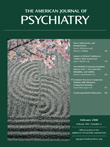Issues for DSM-V: DSM-V Should Include a Conceptual Issues Work Group
In outlining the approaching revision of DSM-IV-TR, we should distinguish between questions that are fundamentally empirical—those that can be addressed by forming clear hypotheses and collecting appropriate data—and those that are not. In this editorial, we discuss this latter category—issues that are conceptual or philosophical in nature.
Are conceptual issues peripheral to the DSM enterprise? We think not. Consider this sample of conceptual questions:
1. What is the definition of a mental disorder? If disorder X is proposed for DSM-V, how will we decide whether it represents a legitimate psychiatric condition?
2. What should be the criteria for revising diagnostic criteria?
3. What are the organizing principles for our classification? Should disorders be classified by symptomatic resemblance, etiological relationships, or other considerations?
4. In validating alternative criteria sets, which validators (treatment outcome, genetic markers, course) should be given priority? What do we do if distinct validators give different answers?
5. As we introduce laboratory values or other etiological criteria into DSM, what guidelines should be established regarding their inclusion and performance?
6. How should we relate dimensional models for mental disorders to traditional, symptom-driven categories?
7. What should be the mechanisms for setting priorities for all these questions?
Conceptual issues cut across disorders and work group boundaries. In past DSM revisions, conceptual questions were considered on an ad hoc basis by individual work groups and the task force. This inefficient and potentially confusing approach results in inconsistencies. Conceptual questions are not minor “side issues” to be dealt with in improvised ways. Just as we have experts and large literatures on the substantive empirical questions of diagnostically oriented work groups, there are also experts and substantial literatures on the conceptual questions. Distinct methods have evolved for analysis of conceptual issues, and the expertise required for such analysis is not consistently found in each work group. DSM-IV set a precedent for establishing work groups that cut across diagnostic boundaries: a cultural issues work group that contributed the “Outline for Cultural Formulation and Glossary of Culture-Bound Syndromes” (Appendix I in DSM-IV) and the “culture-specific features” text section for each disorder. The literature on DSM conceptual issues, much like the literature on cross-cultural issues, is extensive, deserving its own review and assimilation into the DSM-V project. (A sample bibliography of DSM conceptual issues is available in the data supplement that accompanies the online edition of this editorial.)
How would members be appointed to a conceptual issues work group? Of course, developing criteria for appointments to any work group is itself a conceptual issue worthy of careful attention. For now, appointments could be made as they are for any other work group, namely, to those who have contributed substantially to the DSM conceptual issues literature and have been constructive colleagues.
We all want DSM-V to be scientifically valid, and conceptual clarification is a critical partner to good scientific work. Clarification of assumptions, terms, and values bolsters good science, and careful consideration of these elements advances the scientific rigor of our work (1) . Progress is not made by driving quickly down a road if it is the wrong road. From the standpoints of efficiency, thoroughness, and accountability, we believe that a DSM-V conceptual issues work group is a well-justified procedural addition that will supplement the rigor and validity of the entire DSM process.
1. Zachar P, Kendler KS: Psychiatric disorders: a conceptual taxonomy. Am J Psychiatry 2007; 164:557–565Google Scholar



